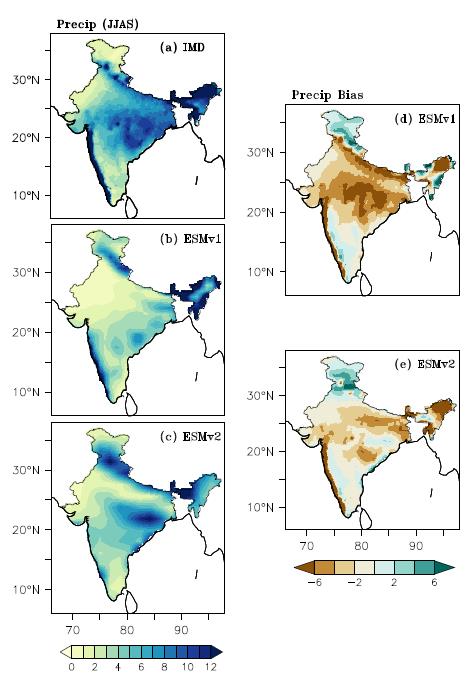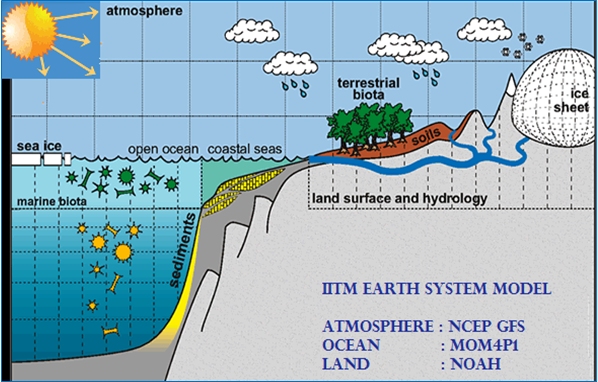Latest Updates
- The IITM Earth System Model (IITM-ESM), developed recently at CCCR, IITM, is an outcome of incorporating earth system components in the Climate Forecast System (CFS) coupled model from National Center for Environmental Prediction (NCEP, USA), and thereby transforming the CFS seasonal prediction model to a long-term climate model. The first version of IITM ESM (ESM1.0) showed significant improvements in the simulation of sea surface temperature and captures dominant modes of climate variabilities and their links with the Indian summer monsoon. In a recent version (IITM- ESM2.0), further improvements are incorporated in order to obtain a radiatively-balanced global climate modeling framework, which is required for predicting long-term climate change. Additionally, radiative effects of natural and anthropogenic aerosols are incorporated by specifying time-varying 3-dimensional fields of aerosol optical properties. The IITM- ESM2.0 also shows improvements in simulating sea ice distribution, ocean biogeochemistry and mean precipitation over Asian monsoon region. The IITM-ESM will be the first climate model from India that will be participating in the Coupled Modeling Intercomparison Project- Phase 6 (CMIP6) experiments required for the Intergovernmental Panel on Climate Change (IPCC) 6th Assessment Report.
- Mean precipitation (mm/day) and
precipitation bias during summer monsoon season





